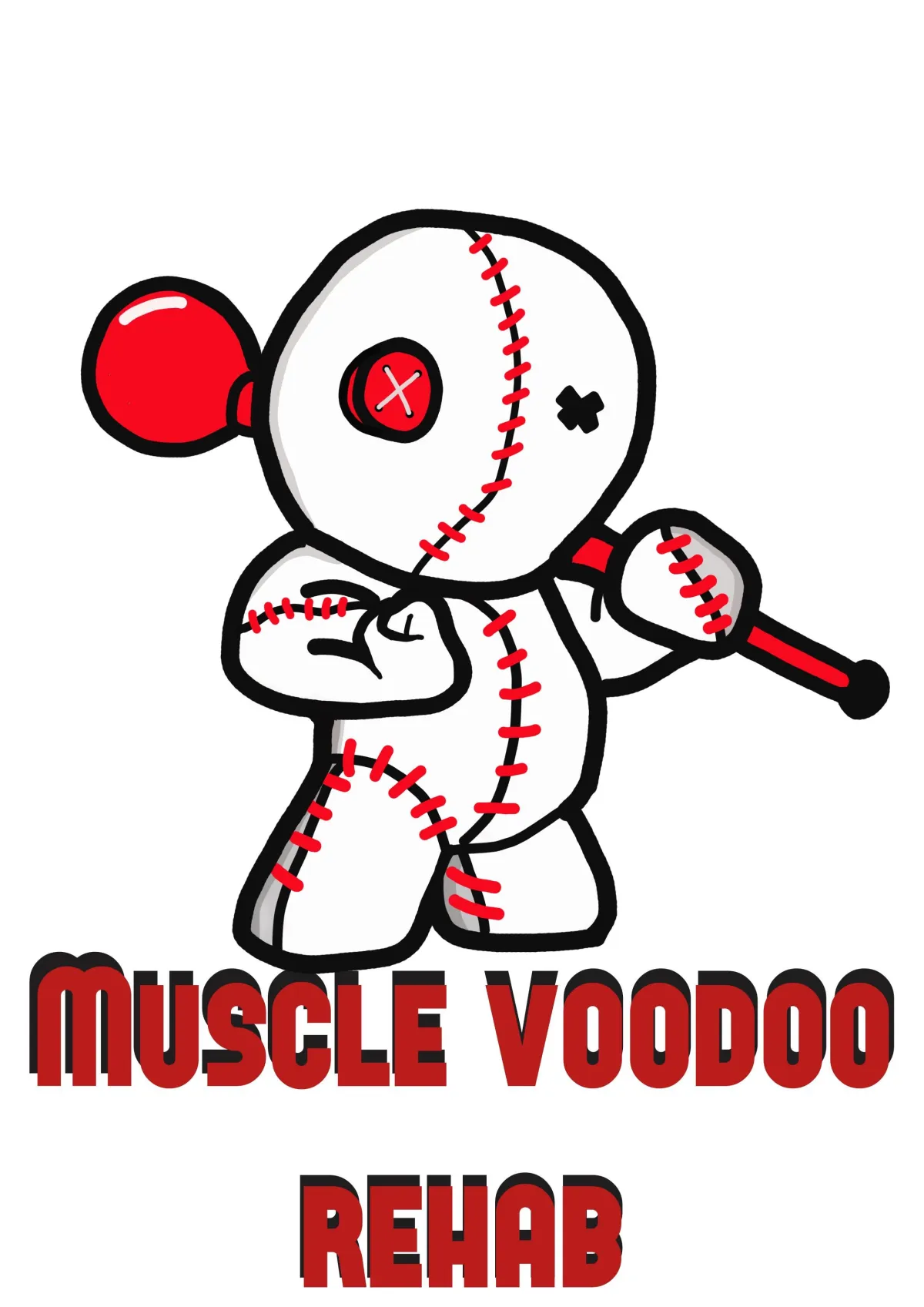Muscle Voodoo Rehab
Your pain free life is just a click away
How We Can Help End Your Pain
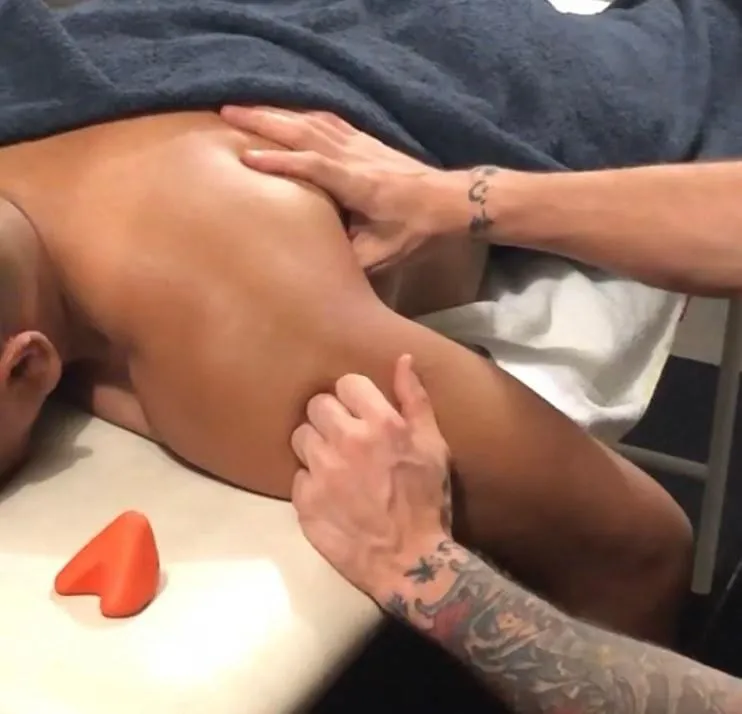
Trigger Point Therapy
Trigger Point Therapy is a specialized form of bodywork designed to alleviate pain and discomfort caused by tight, contracted areas within muscles, known as trigger points. These trigger points are small knots that form when muscles become overworked, injured, or stressed, and they can often refer pain to other areas of the body.
During a Trigger Point Therapy session, a skilled therapist uses various techniques to locate and treat these trigger points. The therapist applies direct pressure, either with their fingers, knuckles, or specialized tools, to the specific areas where the trigger points are located. This pressure helps release the tension in the tight muscle fibers, allowing them to relax and return to their normal state.
One key aspect of Trigger Point Therapy is the concept of referred pain. Trigger points can send pain signals to different parts of the body, not just where the knot is located. By addressing these trigger points directly, therapists can often relieve pain in areas that may seem unrelated to the source of the discomfort.
The therapy session may involve some discomfort, but the therapist will work with the client to find a level of pressure that is both effective and tolerable. It's essential to communicate with the therapist during the session to ensure the treatment is tailored to the individual's needs and comfort level.
Trigger Point Therapy can be beneficial for various conditions, including tension headaches, neck and shoulder pain, back pain, sciatica, and even fibromyalgia. Many people experience significant pain relief and improved mobility after undergoing regular Trigger Point Therapy sessions.
It is important to note that Trigger Point Therapy is just one component of a comprehensive pain management and wellness plan. Depending on the individual's condition, therapists may recommend additional therapies, stretching exercises, and lifestyle changes to support long-term healing and prevention.
Neuromuscular Facilitation
Proprioceptive Neuromuscular Facilitation (PNF) is a specialized and highly effective stretching technique used to enhance flexibility, improve range of motion, and increase muscle strength. It was initially developed by physical therapists in the 1940s to help patients recover from neuromuscular disorders and injuries, but it has since become widely used in various sports and rehabilitation settings.
The fundamental principle of PNF lies in engaging the neuromuscular system to facilitate a deeper and more effective stretch. It involves a combination of passive stretching and isometric muscle contractions to achieve optimal results.
Here's how PNF typically works:
Passive Stretch: The process begins with the therapist or a partner passively stretching the targeted muscle or muscle group. This initial stretch helps loosen the muscle and prepare it for the subsequent phases of the technique.Isometric Contraction: After the passive stretch, the individual being stretched is asked to contract the targeted muscle group isometrically, meaning they hold the muscle at a specific length without changing its length. The contraction should be held for a few seconds while resisting any external force applied by the therapist or partner.Relaxation and Deeper Stretch: After the isometric contraction, the individual relaxes the muscle, and the therapist takes the stretch slightly further, utilizing the muscle's increased flexibility gained from the contraction. This step allows for a deeper and more effective stretch than would be achievable with passive stretching alone.Repeat the Process: The PNF stretching process is typically repeated several times, gradually increasing the stretch's intensity and range of motion with each repetition.
PNF can be used for various muscle groups throughout the body and is especially popular for targeting large muscle groups such as hamstrings, quadriceps, and hip flexors. It is often employed in sports training to improve athletic performance, prevent injuries, and enhance overall flexibility.
Benefits of Proprioceptive Neuromuscular Facilitation (PNF) include:
Increased Flexibility: PNF stretching can lead to significant gains in flexibility, making it an invaluable tool for athletes and individuals seeking to improve their range of motion.Enhanced Muscle Strength: The isometric contractions during PNF contribute to improved muscle strength, which can positively impact athletic performance and functional movement.Injury Prevention: Regular PNF stretching can help reduce the risk of muscle strains and injuries by keeping muscles flexible and resilient.Rehabilitation: PNF is commonly used in rehabilitation settings to aid in the recovery of individuals with neuromuscular disorders, musculoskeletal injuries, or after surgery.
It's important to note that PNF stretching should be performed with proper guidance and supervision, especially for beginners or those with specific medical conditions. Consulting a trained professional, such as a physical therapist or certified athletic trainer, is recommended to ensure safe and effective implementation of PNF techniques.
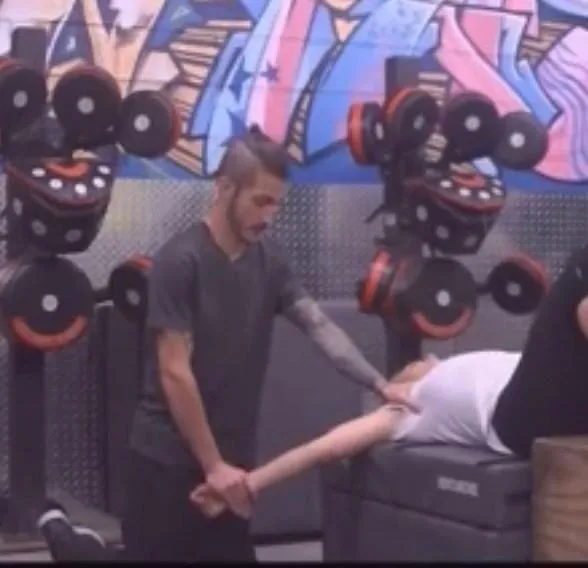
Integrated Corrective Exercise
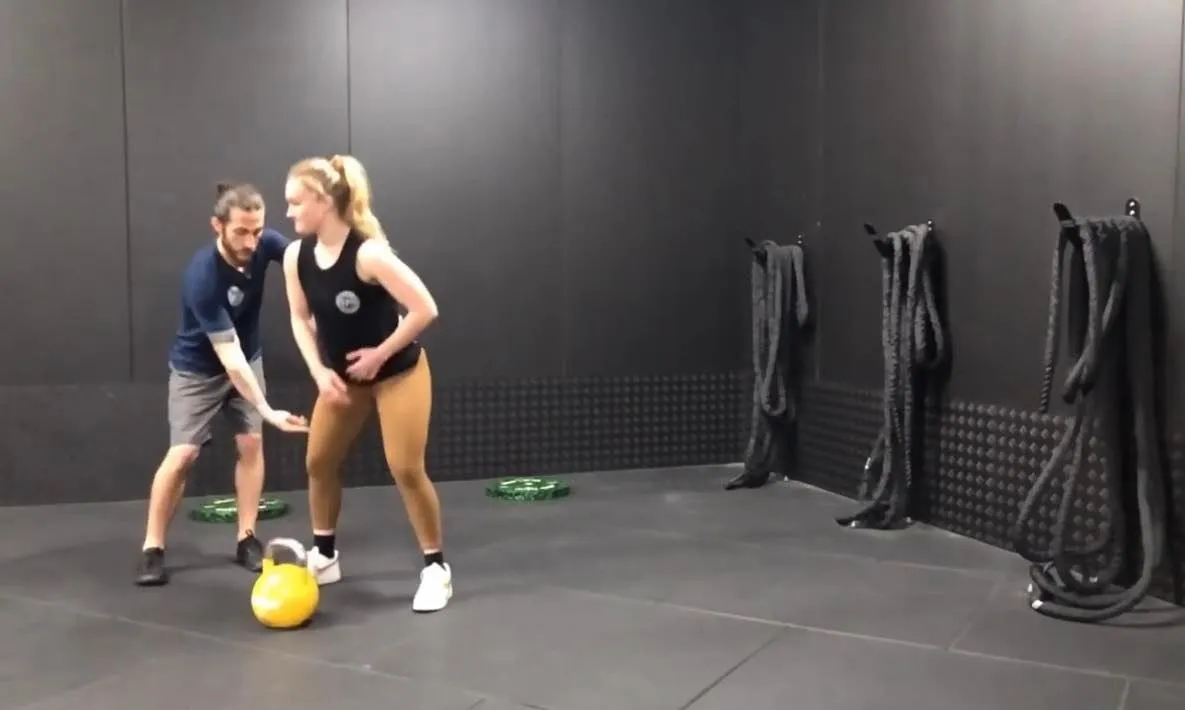
Integrated Corrective Exercise is a comprehensive and personalized approach to fitness and rehabilitation that focuses on identifying and addressing musculoskeletal imbalances and movement dysfunctions. It combines elements of corrective exercise, functional training, and physical therapy to help individuals improve their overall movement quality, reduce pain, and enhance performance in daily activities and athletic endeavors.
The key principles of Integrated Corrective Exercise include:
Movement Assessment: The process begins with a thorough movement assessment conducted by a qualified fitness professional, physical therapist, or corrective exercise specialist. This assessment helps identify any asymmetries, weaknesses, imbalances, or restricted movement patterns that may be causing pain or hindering performance.
Individualized Programming: Based on the results of the movement assessment, a customized exercise program is designed to address the specific needs and goals of the individual. This program typically includes a combination of corrective exercises, functional movements, and strength training.
Corrective Exercises: Specific exercises are prescribed to target and correct the identified imbalances and dysfunctions. These exercises focus on improving flexibility, mobility, stability, and muscle activation in areas of concern.Functional Training: Integrated Corrective Exercise incorporates functional movements that simulate real-life activities and sports-specific actions. This helps individuals transfer their improved movement patterns from the gym setting to daily life or athletic performance.
Progression and Monitoring: As the individual progresses, the exercise program is continually adjusted and advanced to challenge their body and support ongoing improvements. Regular monitoring ensures that the corrective exercise plan remains effective and safe.
Benefits of Integrated Corrective Exercise:
Enhanced Movement Quality: By addressing underlying imbalances and movement dysfunctions, Integrated Corrective Exercise helps individuals move more efficiently and with less risk of injury.
Pain Reduction: Correcting musculoskeletal imbalances often alleviates chronic pain and discomfort, allowing individuals to move and function more comfortably.
Improved Performance: Whether in daily activities or sports, optimized movement mechanics and enhanced functional strength can lead to improved performance and reduced risk of injuries.
Injury Prevention: Integrated Corrective Exercise can help prevent injuries by addressing weaknesses and imbalances before they lead to more significant problems.
Personalized Approach: The individualized nature of Integrated Corrective Exercise ensures that each person's unique needs and goals are taken into account, leading to more targeted and effective results.
It's essential to work with a qualified professional when pursuing Integrated Corrective Exercise, as the assessment and exercise prescription require expertise and a deep understanding of human anatomy and movement. Whether you are recovering from an injury, seeking to improve performance, or aiming for pain relief, Integrated Corrective Exercise can be a valuable and transformative component of your fitness journey.
Muscle Voodoo On Demand
OVER 100 DIFFERENT WORKOUTS AND TRAINING PROGRAMS ON DEMAND.
Welcome to our revolutionary on-demand training and rehab video program, where your well-being takes center stage! Are you ready to embark on a transformative journey towards a stronger, fitter, and healthier you? Look no further! Our cutting-edge program is designed to bring the expertise of top trainers and rehabilitation specialists directly to your fingertips, whenever and wherever you need it.
Say goodbye to rigid schedules and hello to flexibility! Our on-demand platform grants you unlimited access to a vast library of dynamic training and rehab videos, tailored to suit your specific goals and needs.
Whether you're an athlete striving for peak performance, recovering from an injury, or simply looking to enhance your overall fitness, our program offers a comprehensive range of workouts and rehabilitation exercises to guide you every step of the way.
Are you ready to unlock your full potential and achieve remarkable results? Join our on-demand training and rehab video program today, and let us guide you towards a stronger, healthier, and more vibrant version of yourself. Get started now and experience the transformation that awaits you!

1 on 1 Rehab &
Functional Conditioning
$90
1 x 1 on 1 Targeted Video Session
Full Follow Along Video Program
Discounted Equipment
Your Own Nutrition Expert
Exclusive Community Support
Muscle Voodoo Muscle
Magic Membership
$50 p/m
On Demand Training Systems
Nutrition Templates
Exclusive Community Support
On Demand Seminars
Discounted Equipment
TEAM MEMBERS
Meet our experts here to help you achieve your fullest potential
Jason Griggs
Founder
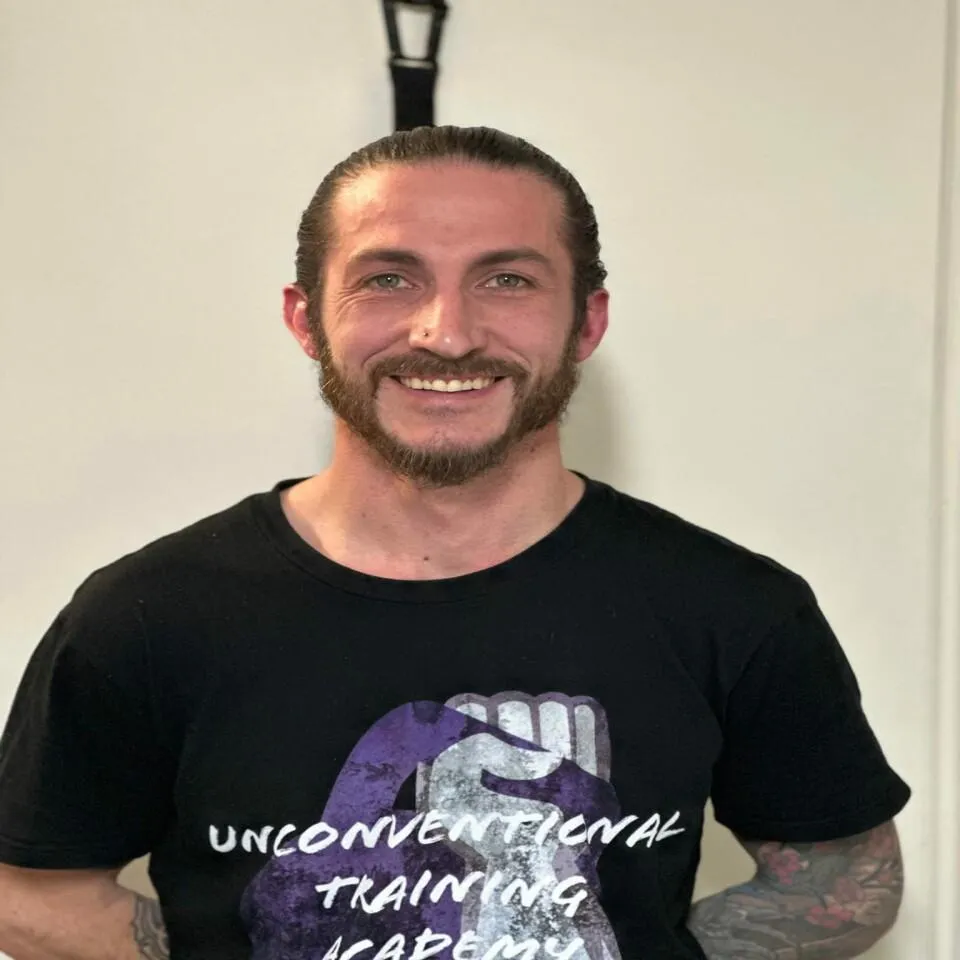
Ella Crocombe
Nutrition Expert
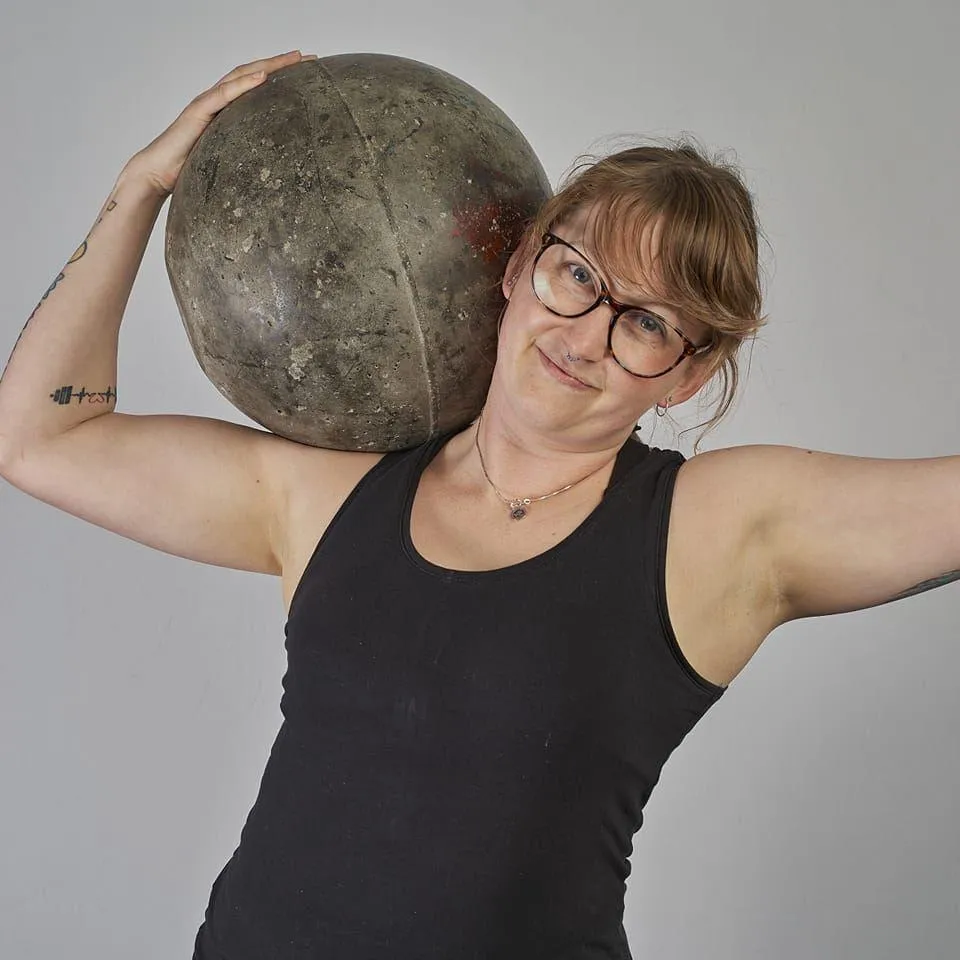
Follow Us On Social Media
Testimonials
People Love Us
I am doing good! Back to exercising daily thanks to you!
John Webster

Jason is kind, supportive and full of knowledge. Really helped me to aim high and reach my goals. Who would of thought I'd actually look forward to a PT session
Courtney Fenton

Shoulder is so great! I put a set of shoes on a horse today
Ev Brereton - Equine Therapist

Get In Touch
Email: musclevoodoorehab@gmail.com
Assistance Hours
Mon – Fri 9:00am – 8:00pm
Saturday - 8:00am - 12:00pm
Sunday – CLOSED
Phone Number:
0407 776 082
Call 0407 776 082
Email: musclevoodoorehab@gmail.com
Site: www.musclevoodoorehab.com
